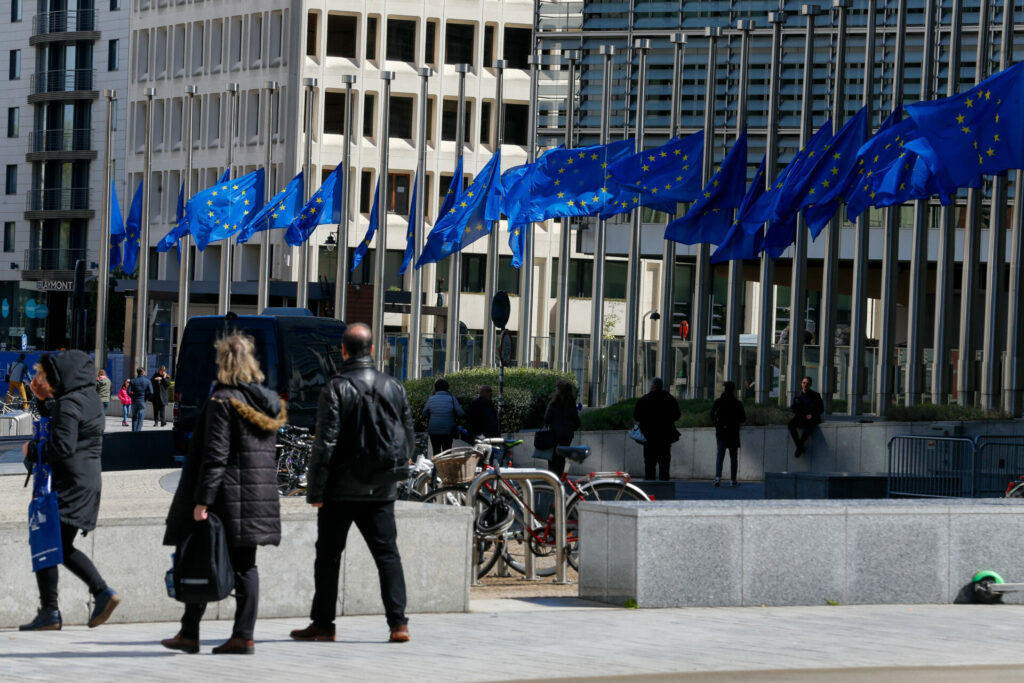Europe will narrowly avoid a recession this year but severe threats to the bloc's economic prosperity remain, a recent EU report has found.
According to official figures released by the European Commission on Monday, the EU is set to grow by 0.8% in 2023 – 0.5% more than previously forecast – allowing the bloc to "narrowly avoid the technical recession that was anticipated for the turn of the year". A recession is defined as two consecutive quarters of negative growth.
Growth forecast for 2023 (%):
🇮🇪 4.9 🇲🇹 3.1 🇷🇴 2.5 🇱🇺 1.7 🇨🇾 1.6 🇸🇰 1.5 🇪🇸 1.4 🇧🇬 1.4 🇬🇷 1.2 🇭🇷 1.2 🇸🇮 1.0 🇵🇹 1.0 🇳🇱 0.9 🇧🇪 0.8 🇮🇹 0.8 🇪🇺 0.8 🇫🇷 0.6 🇭🇺 0.6 🇦🇹 0.5 🇵🇱 0.4 🇱🇹 0.3 🇩🇪 0.2 🇫🇮 0.2 🇨🇿 0.1 🇪🇪 0.1 🇱🇻 0.1 🇩🇰 0.1 🇸🇪 -0.8 Winter #ECForecast ↓ — European Commission 🇪🇺 (@EU_Commission) February 13, 2023
The Commission attributed the EU's improved economic prospects to a confluence of factors, including the "continued diversification" of its energy supply, Europeans' reduction in energy consumption, and a recent dramatic fall in gas prices precipitated by Europe's unseasonably warm winter weather.
Despite these positive developments, it suggested that economic "headwinds... remain strong". In particular, it pointed out that energy costs remain high compared to previous years, while 'core' inflation – which strips out energy and unprocessed food prices – continues to increase. This, in particular, could lead to further monetary tightening by the European Central Bank (ECB), possibly bringing on a technical recession.
Additional dangers
Further threats facing Europe's economy include a potential hike in energy prices catalysed by Russia cutting its remaining energy exports to Europe, as well as China's re-opening leading to an increase in global commodity prices.
"A potential reversal of [the fall in gas prices] cannot be ruled out in the context of continued geopolitical tensions," the Commission report noted. "External demand could also turn out to be more robust following China's re-opening. However, this could fuel global inflation."
Moreover, the EU noted that its predictions are provisional and "crucially hinge" on a host of technical assumptions, including, notably, that the war in Ukraine "will not escalate but will continue throughout the forecast horizon".
Related News
- UK only major economy to shrink in 2023, says IMF
- Belgium to fall into recession this year, UCLouvain study finds
"Europe's economy is proving resilient in the face of current challenges," said Valdis Dombrovskis, the Commission Executive Vice-President for an Economy that Works for People. "We are somewhat more optimistic about growth prospects and the projected decline in inflation this year. But we still face multiple challenges, so this is no time for complacency – not least because Russia's relentless war against Ukraine is still causing uncertainty."
The EU's more optimistic economic forecast for 2023 has recently been mirrored by other major institutions: last month, the IMF upwardly revised its growth forecasts for 2023 for the eurozone area from 0.5% to 0.7%, partly as a result of falling gas prices.

